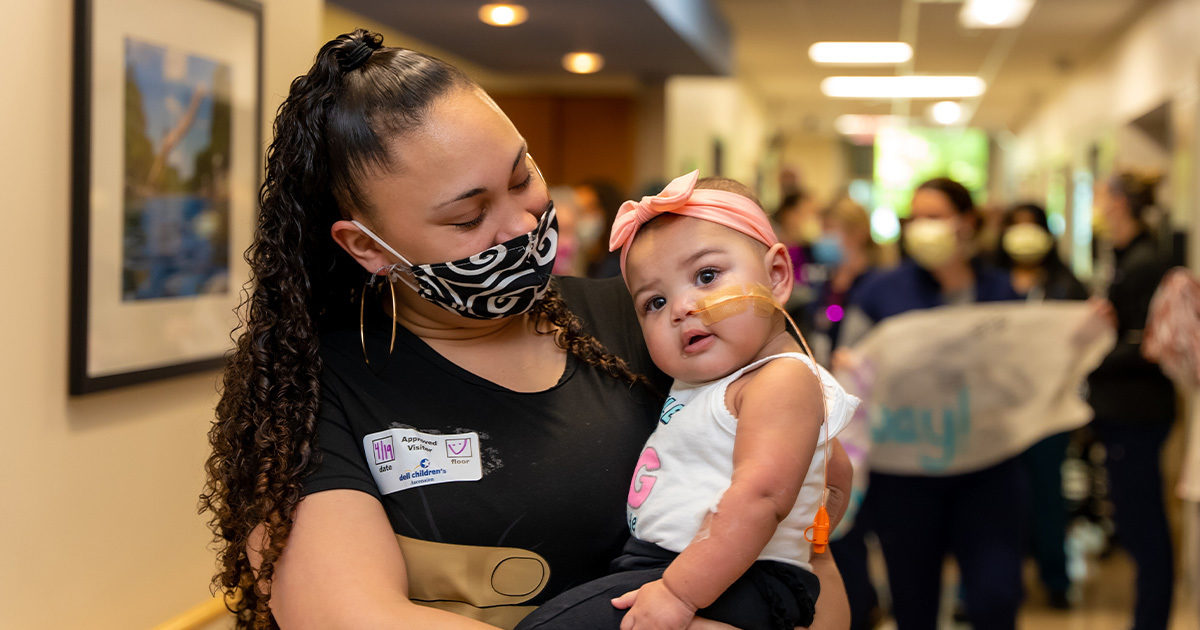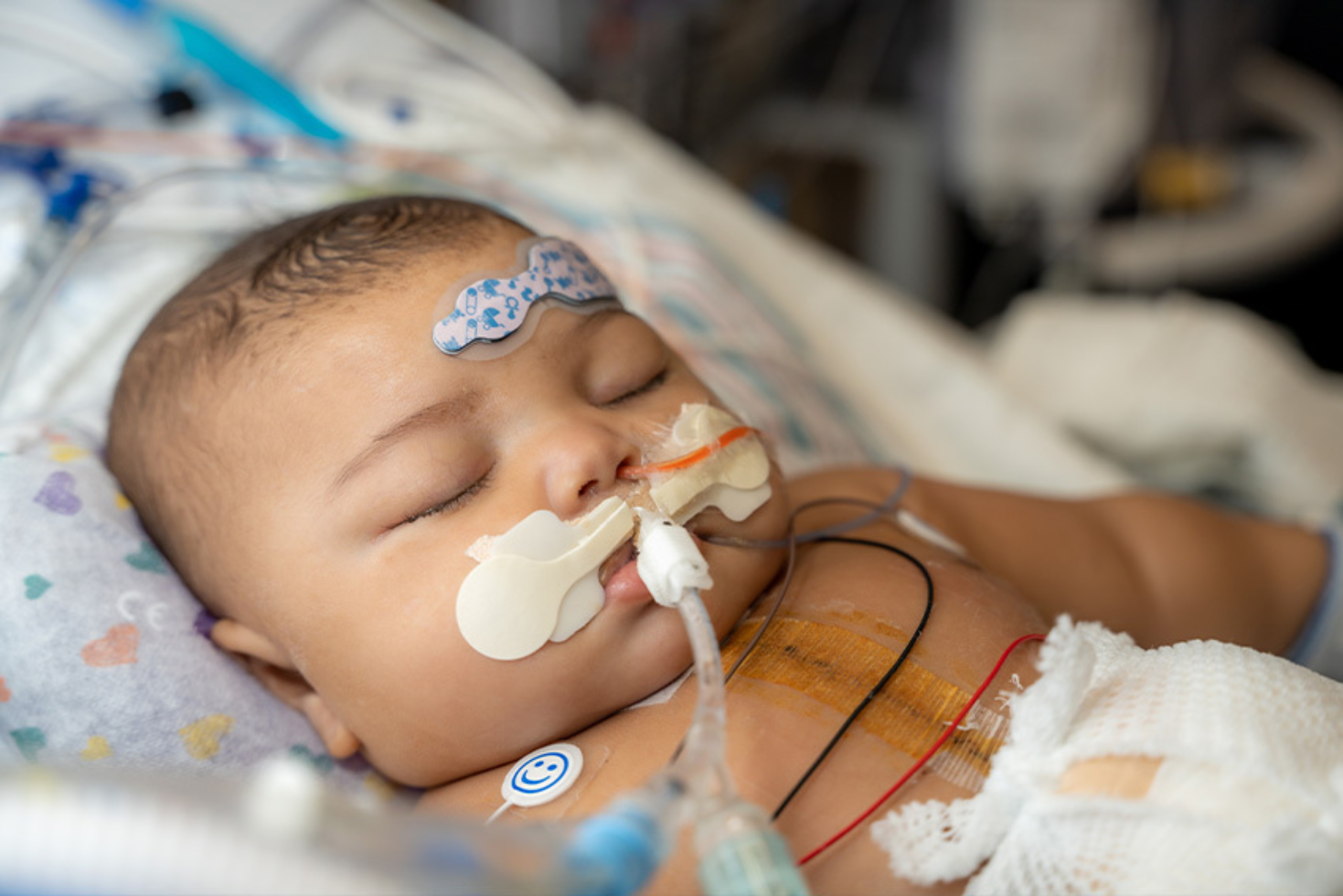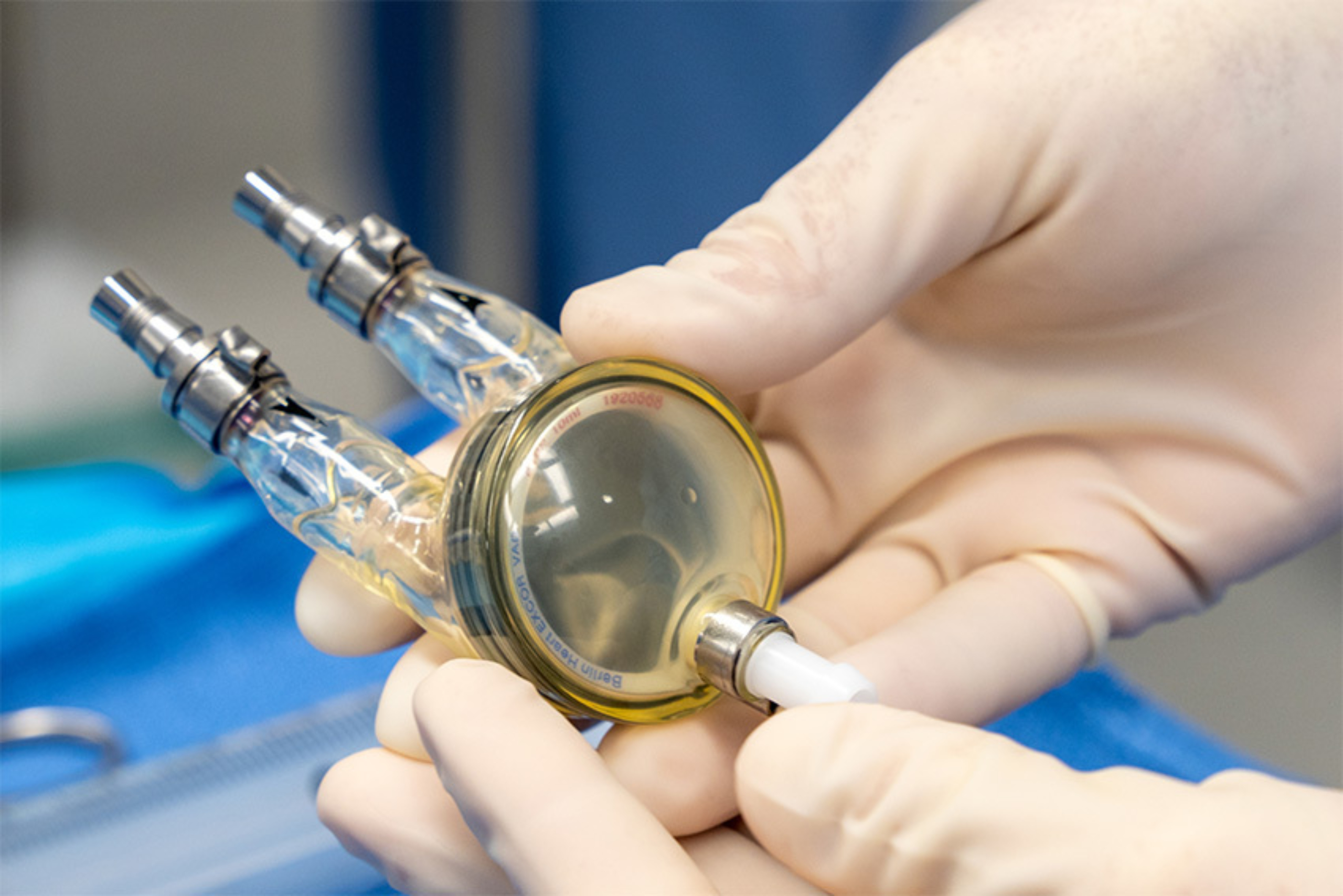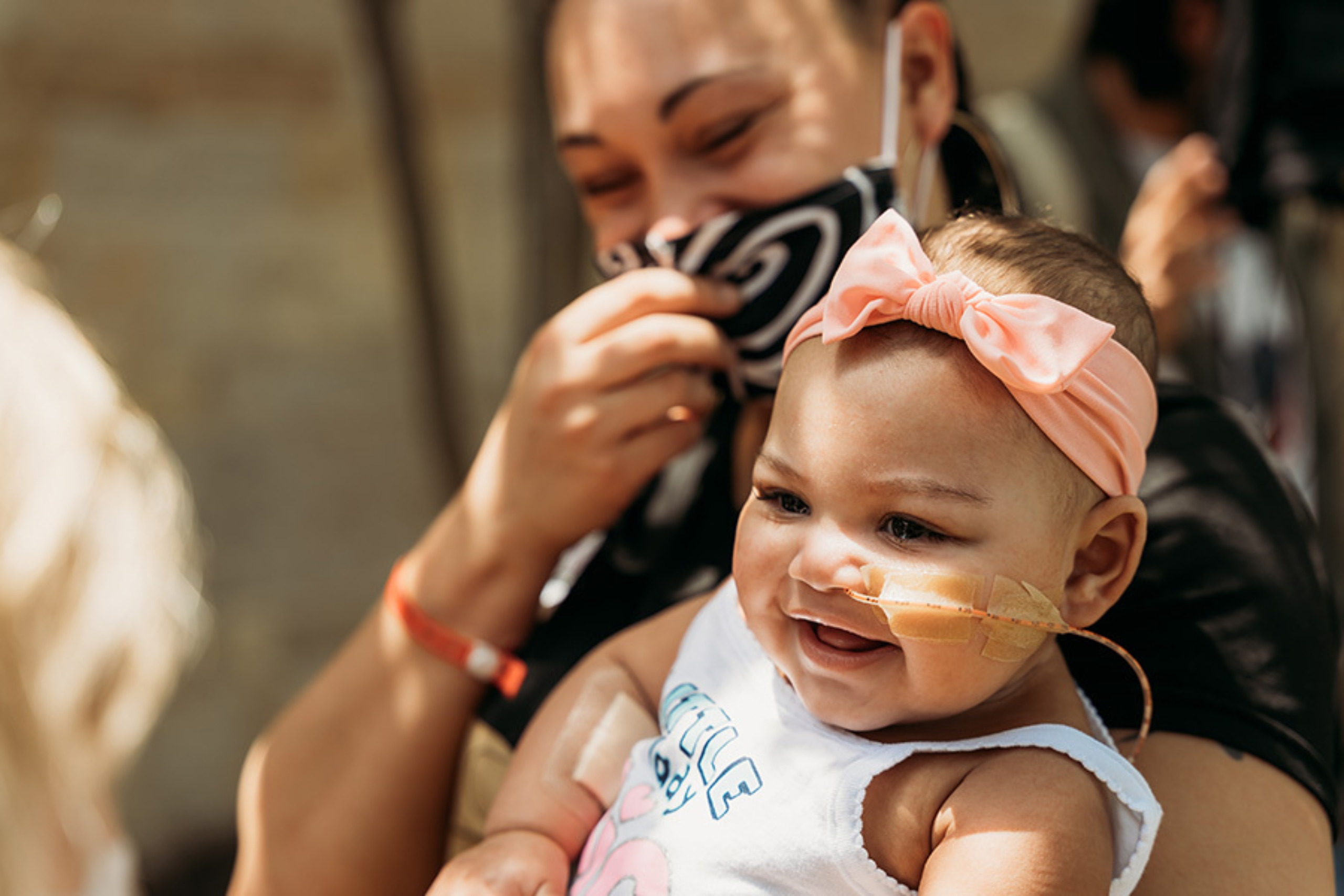Lifesaving Device Supports Infant While Awaiting a Heart Transplant
The Texas Center for Pediatric and Congenital Heart Disease is first in Central Texas to successfully provide a pediatric patient with a Berlin Heart ventricular assist device
Reviewed by: Charles Fraser, Jr. MD, Carlos Mery, MD, MPH, and Chesney Castleberry, MD
Written by: Lauryn Gerard

On January 11, 2021, the Texas Center for Pediatric and Congenital Heart Disease, a clinical partnership between UT Health Austin and Dell Children’s Medical Center, successfully implanted its first Berlin Heart ventricular assist device in a pediatric patient, providing 3-month-old Zaria Grace Jackson with a fighting chance as she awaits a heart transplant.
UPDATE: On March 25, 2021 Zaria received her heart transplant, making her the third patient at Dell Children’s Medical Center to receive a heart transplant since the program began in October 2020. After 74 days of recovery, 6-month-old Zaria was discharged on April 19, 2021 to return home with her family!
On January 8, 2021, Zaria arrived at Dell Children’s emergency department, presenting symptoms and signs of heart failure. After discovering her heart was enlarged, Zaria was quickly admitted to the pediatric cardiac care unit. As her cardiac condition rapidly deteriorated, the Texas Center for Pediatric and Congenital Heart Disease care team determined Zaria’s best chance for survival was the implantation of a Berlin Heart. Zaria’s care team included UT Health Austin nationally recognized pediatric heart surgeons Charles D. Fraser, Jr., MD, Ziyad Binsalamah, MD, MSc, FRCSC, FACS, Carlos M. Mery, MD, and Ziv Beckerman, MD, as well as Dell Children’s pediatric cardiologist Chesney Castleberry, MD. The cause of Zaria’s heart failure remains uncertain.

“The Berlin Heart is a ventricular assist device (VAD) designed specifically for children in heart failure awaiting a heart transplant,” explains Chief of Pediatric and Congenital Heart Surgery Dr. Fraser. “Zaria can live with the support of the Berlin Heart for an extended period, while we wait on a donor heart.”
The Berlin Heart is a heart pump used to maintain blood flow in babies and small children when their own heart becomes too weak to pump a sufficient amount of blood to their lungs or throughout their body. This type of heart pump pulls blood from the left ventricle and sends that blood to the aorta to help relieve extra work demanded of the native heart, offering a “bridge to life” for babies and small children awaiting a heart transplant. The Berlin Heart is the only device of its kind available to support babies and small children with serious heart failure.
“I was in disbelief at first, but this is a lifesaving device,” emphasizes Olivia Guthrie, Zaria’s mother. “We are so grateful that we did not have to travel to Houston or Dallas for Zaria’s critical care.”

The Texas Center for Pediatric and Congenital Heart Disease offers a full continuum of heart care from diagnosis to treatment and management, which includes performing surgery and providing complex care for high-risk children, such as Zaria, who are in need of a transplant. This is new for residents of Central Texas who, prior to the development of the Texas Center for Pediatric and Congenital Heart Disease, were forced to travel to Houston or Dallas for critical heart care of this caliber.
Zaria’s eight-hour surgery was performed by Dr. Fraser and Dell Children’s new Surgical Director of Heart Transplantation and Mechanical Circulatory Support, Dr. Binsalamah. Zaria’s Berlin Heart surgery took place just one day after Dr. Binsalamah’s arrival at Dell Children’s.
“I trained with Dr. Fraser and Dr. Carlos Mery, and we know each other very well,” shares Dr. Binsalamah. “I came to Dell Children’s to be part of one of the best transplant programs in the country. I am also excited to be part of the collaboration between Dell Children’s, UT Health Austin, and [the] Dell Medical School [at The University of Texas at Austin] with the goal of working on innovative heart implant devices and academic research.”

The Heart Failure, VAD, and Transplant Program within the Texas Center for Pediatric and Congenital Heart Disease is led by the program’s Surgical Director Dr. Mery and Medical Director Dr. Castleberry, both of whom work alongside a team of pediatric cardiac experts, which includes Dr. Fraser, Dr. Binsalamah, Dr. Beckerman, and more, to provide multidisciplinary, whole-person care to patients, such as Zaria.
“The whole team is engaged in [Zaria’s] care, from health social workers to transplant coordinators and more. We are helping the family get through this with the best possible outcome,” says Dr. Castleberry.
A convergence of expertise made this lifesaving option possible at Dell Children’s. The Texas Center for Pediatric and Congenital Heart Disease would not be as successful without the clinical partnership between UT Health Austin and Dell Children’s, which has allowed for the recruitment of the nation’s top clinical leaders.
The Texas Center for Pediatric and Congenital Heart Disease was established at Dell Children’s in 2018. This program includes the integration of clinical academics and research-driven initiatives through the exclusive partnership with UT Health Austin, the clinical practice of the Dell Medical School at The University of Texas at Austin. As the only Level 1 Pediatric Trauma Center in Central Texas, the capability of the Heart Failure, VAD, and Transplant Program is enriched by Dell Children’s depth and breadth of expertise in numerous subspecialties. The Texas Center for Pediatric and Congenital Heart Disease’s first left ventricular assist device (LVAD) procedure was performed in September 2019 and its first heart transplant was performed in October 2020.
For more information about the Texas Center for Pediatric and Congenital Heart Disease, click here or call 1-855-324-0091.